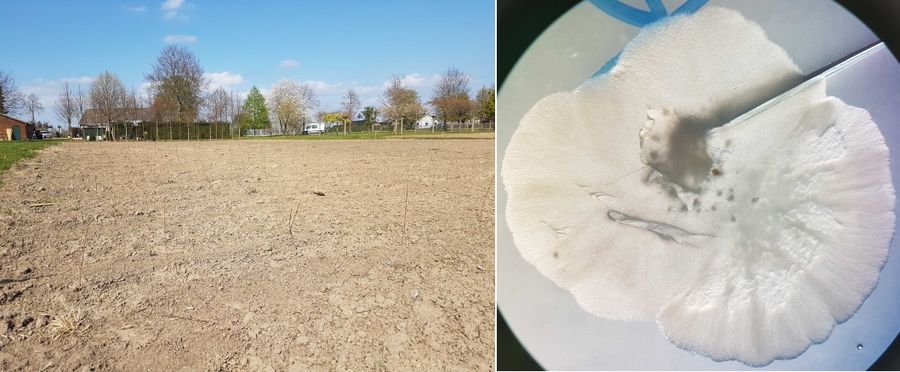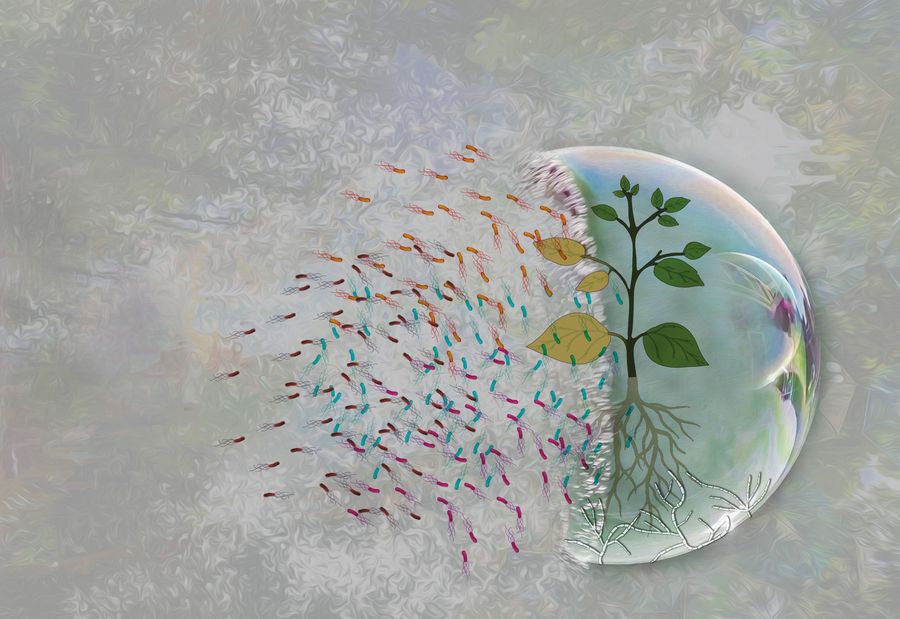
Our Mission
Our mission is to gain fundamental knowledge to understand how fungal plant pathogens cause disease on their hosts. To this end, we study mechanisms of pathogenicity and virulence, as well as how such mechanisms evolved and continue to evolve. This research is performed in the context of the plant as a “holobiont”; an assemblage of the host and its immune system, but also the many other species living in or around it and that somehow contribute to its functioning.
Our Work
Our research mostly focuses on soil-borne vascular wilt fungi of the Verticillium genus, with Verticillium dahliae as its most notorious representative that is able to infect hundreds of plant species, including numerous crops. We try to understand interactions of Verticillium dahliae with its wide host range, but also interactions with bacteria as well as other microbial life as it occurs in the rhizosphere.
Our knowledge may contribute to novel strategies aimed at prevention, management or control of diseases in crops as well as in natural ecosystems.

We are currently working on the following topics


Microbiome manipulation by verticillium dahliae

Verticillium dahliae genome evolution

Fungal interactions with algae
Our Philosophy
In our lab, we strive to be inclusive and celebrate complementary approaches and points of view. We believe diversity drives innovation, we build a culture that values difference, and we foster both top-down and grassroots approaches. We create a positive, supportive and stimulating atmosphere to help employees grow and manage their careers by providing freedom to address the broadest set of initiatives.
Our Network
Our group is embedded in the Cluster of Excellence on Plant Sciences (CEPLAS), and receives generous funding from the Alexander von Humboldt foundation.

